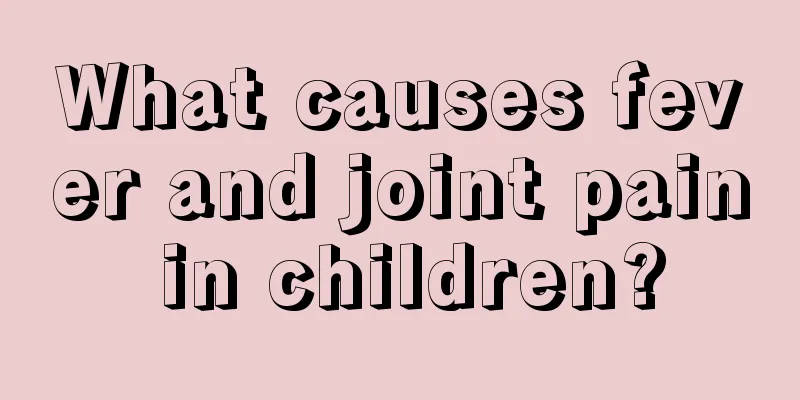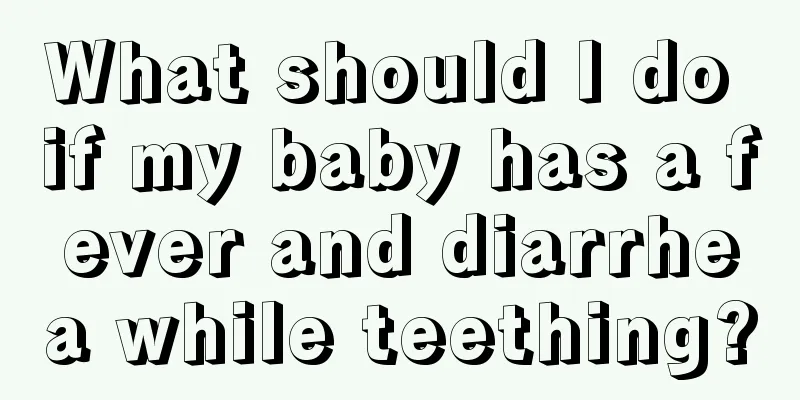Baby teething time sequence and symptoms

|
Every mother will feel that the baby’s teething stage is the most fun stage, but also the most distressing stage. During the teething period, many babies like to bite things, sometimes even people. Every baby has a different physique, so the timing of teething is also different. Next, I will introduce to you the time sequence and symptoms of baby teething, hoping to be helpful to all parents. 1. The time and order of baby teeth growth 1. Central incisor: 6 months for mandibular; 7.5 months for maxillary 2. Lateral incisors: mandibular 7 months; maxillary 9 months 3. First deciduous molars: mandibular 12 months; maxillary 14 months 4. Canines: 16 months for lower jaw and 18 months for upper jaw 5. Second deciduous molars: mandibular 20 months; maxillary 2 years It is important to remind everyone that the teething cycle of babies is different. Although the first tooth should grow at about 6 months old, for deciduous teeth, a time difference of within half a year is normal, and the reasonable time difference for permanent teeth can even be extended to 1 year. Therefore, there is generally no need to worry too much. Usually it is just the difference in the speed of tooth growth, which will not affect the function of the teeth. 2. Babies will have some abnormal behaviors during teething, and different babies will have different behaviors. Generally speaking, there are nine aspects: 1. Pain: Your baby may show signs of pain and discomfort. 2. Bad temper: The discomfort caused by teething can make the baby bad tempered and cry a lot, which is especially obvious one or two days before teething. 3. Red cheeks: You may notice red spots on your baby’s cheeks. 4. Drooling: The excessive saliva produced during teething will cause the baby to drool frequently. 5. Chewing, biting or chewing things: If you put anything near the baby's mouth, he may do the above actions. 6. Swollen gums: Check his mouth to see if there is any redness or swelling on the gums. 7. Restless sleep: Your baby may wake up in the middle of the night and seem irritable, even though he had been sleeping soundly before. 8. Increased body temperature: Teething can cause the body temperature to rise slightly, so your baby may feel a little hotter than usual. 9. Butt pain: Although we don't know the reason yet, some parents have noticed that babies are more likely to suffer from diaper rash and may have loose stools when they are teething. Of all the physical conditions of your baby, having healthy teeth is important. Teeth help your baby chew food; when he starts to learn to speak, his teeth determine his articulation and pronunciation; teeth also affect the growth of your baby's upper palate. Parents should pay great attention to the issue of teething. |
<<: What should I do if my five-month-old baby has a fever while teething?
>>: Physical therapy for fever in 10-month-old baby
Recommend
What to do if your newborn baby wakes up easily
For parents, their babies are their treasures, an...
New born baby health
Newborn babies are very fragile and their skills ...
What is the reason for children's poor memory? Mom, do you know?
Children with poor memory can give parents a head...
Thumb tenosynovitis in children
Tenosynovitis is a relatively common disease, and...
What should I do if children’s hands are peeling?
We all have experienced peeling skin. There are m...
What to do if children sweat a lot on their heads
Sweating is a common physical manifestation in ch...
How to tell if a child is mute?
As babies grow up, they will have problems with e...
What to do if your newborn doesn't eat
The physical health of newborns is an issue that ...
What kind of exercise can children do to grow taller?
As we all know, our height is determined by innat...
What to do if your child has cough and asthma
Once a child has asthma problems, it can be very ...
Infant and young child exanthema symptoms and care
When caring for infants and young children, you m...
What's wrong with children's blue eyes? These are the main reasons
Parents will be particularly worried when their c...
What are the symptoms of a broken foot in a child?
Children are naturally very naughty, so they are ...
What to do if your baby's tear duct is blocked
Blocked tear ducts in infants is a common phenome...
What is the thing that prevents hunchback?
Hunchback is a phenomenon of spinal curvature tha...









